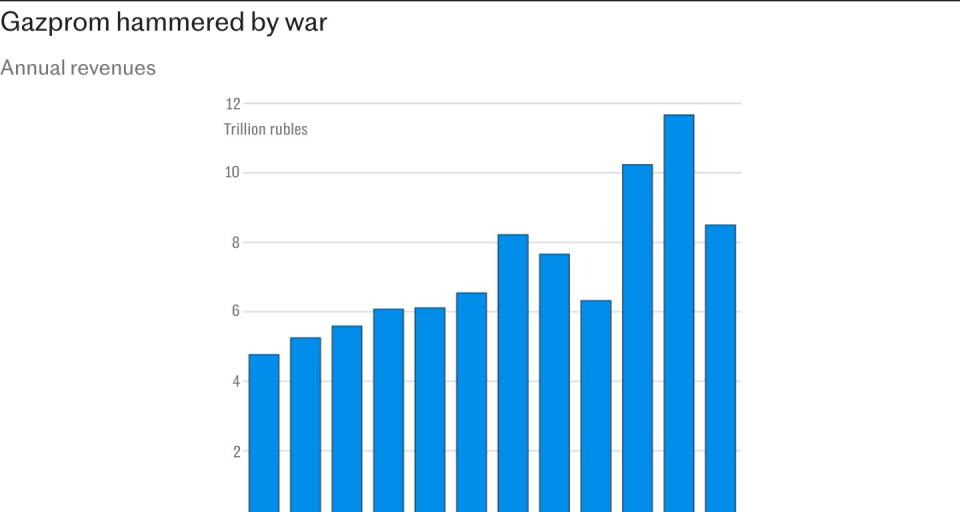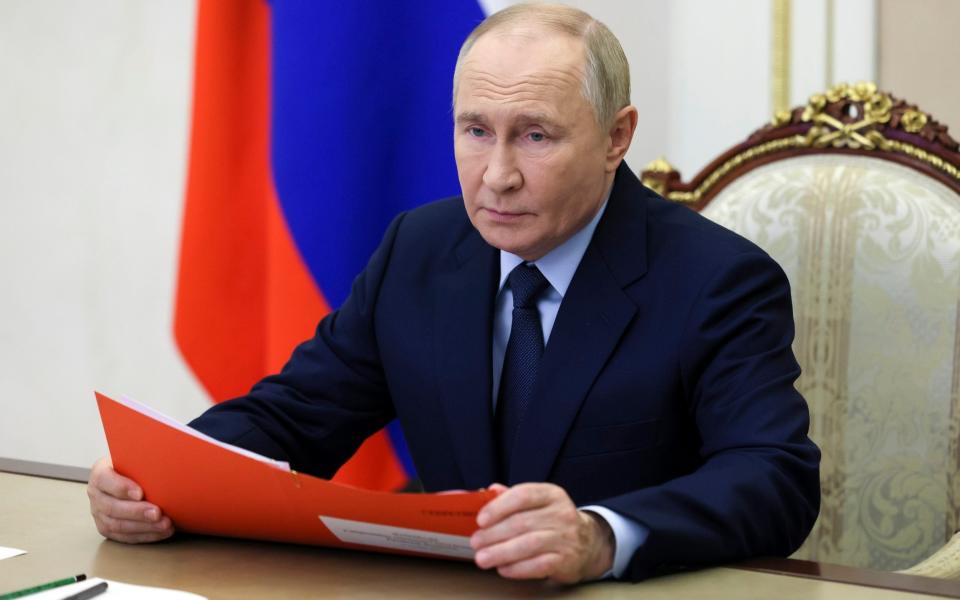
Kremlin-owned energy giant Gazprom suffered a collapse in its North Sea profits last year as sanctions and the windfall tax battered the business.
Gazprom UK, which is owned by the Russian government, saw pre-tax profits fall from €45m (£37.6m) in 2022 to €4m last year, according to accounts filed at Companies House.
The company paid €1.7m in dividends to its Russian parent via a Dutch subsidiary, down from €41m the year prior.
Gazprom UK has been producing gas from the Sillimanite field, which is spread across British and Dutch waters, since 2020 under a joint venture with German company Wintershall.
However, it announced plans in March to sell down its stake, two years after Vladimir Putin’s invasion of Ukraine sparked a wave of Western sanctions that have crippled the Kremlin’s exports.

The company’s UK subsidiary had been benefiting from a surge in energy prices in the wake of the war, which helped the company, Russia’s biggest taxpayer, to send millions to the Kremlin in 2021 and 2022.
The UK accounts, which were filed a day late, were published months after its parent company suffered its first annual loss in more than two decades amid dwindling gas trade with Europe.
“The decrease in profits is primarily due to a decrease in production volumes,” the UK company said in filings.
The accounts also show that most of Gazprom’s UK profits were eaten away by the energy profits levy introduced by Rishi Sunak when he was chancellor, with payments totalling £2.9m since the tax was implemented in May 2022.
The Russian president has also imposed an additional production tax on Gazprom in Russia until 2025 as it struggles to keep financing the war.
The results highlight the dramatic decline of Gazprom, which has been one of Russia’s most powerful companies since the collapse of the Soviet Union.
A report commissioned by the company’s leaders that was published this summer predicted that revenues were unlikely to surpass pre-war levels for at least a decade, with gas exports to Europe barely reaching a third of pre-war levels by 2035.
“The main consequences of sanctions for Gazprom and the energy industry are the contraction of export volumes, which will be restored to their 2020 level no earlier than in 2035,” the document’s authors wrote.
EMEA Tribune is not involved in this news article, it is taken from our partners and or from the News Agencies. Copyright and Credit go to the News Agencies, email news@emeatribune.com Follow our WhatsApp verified Channel




